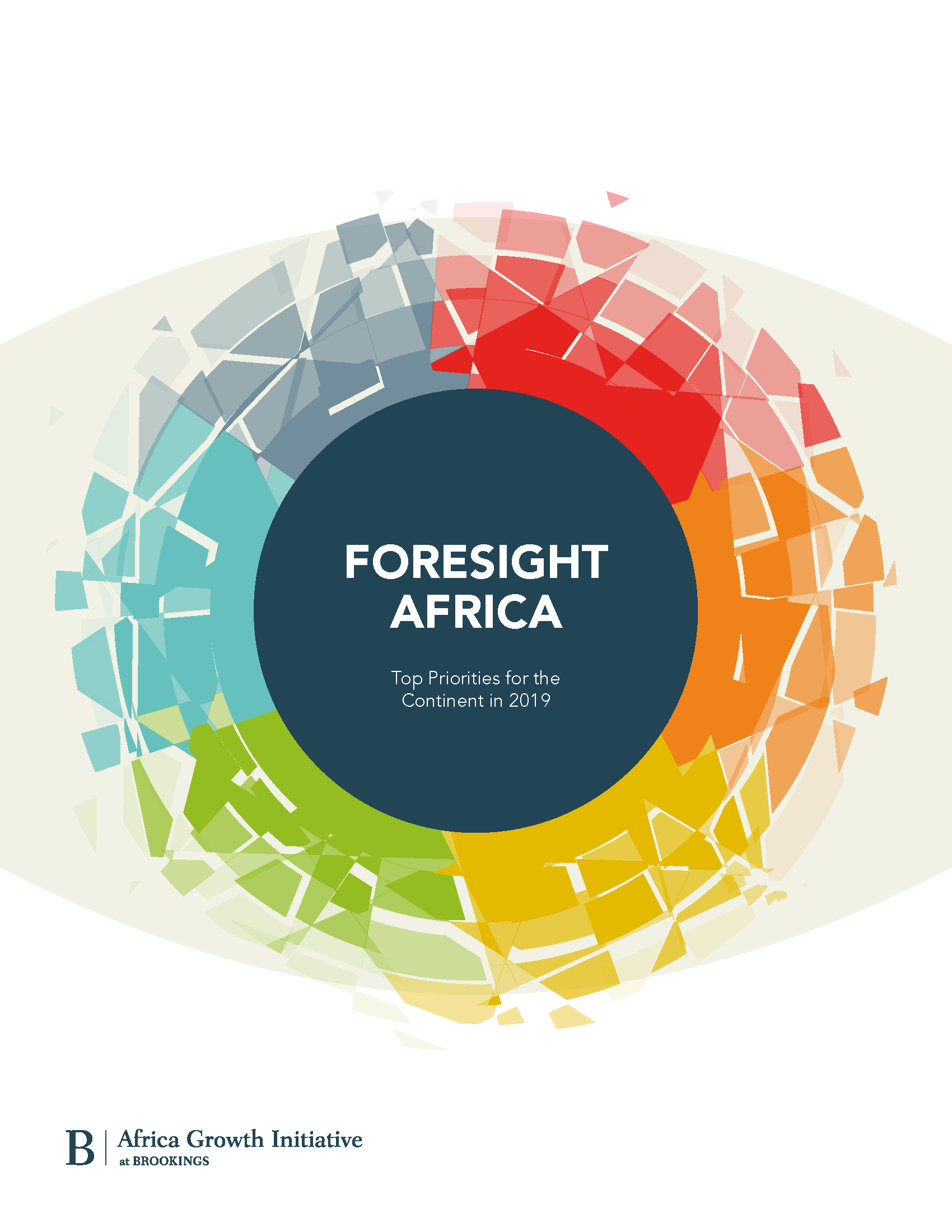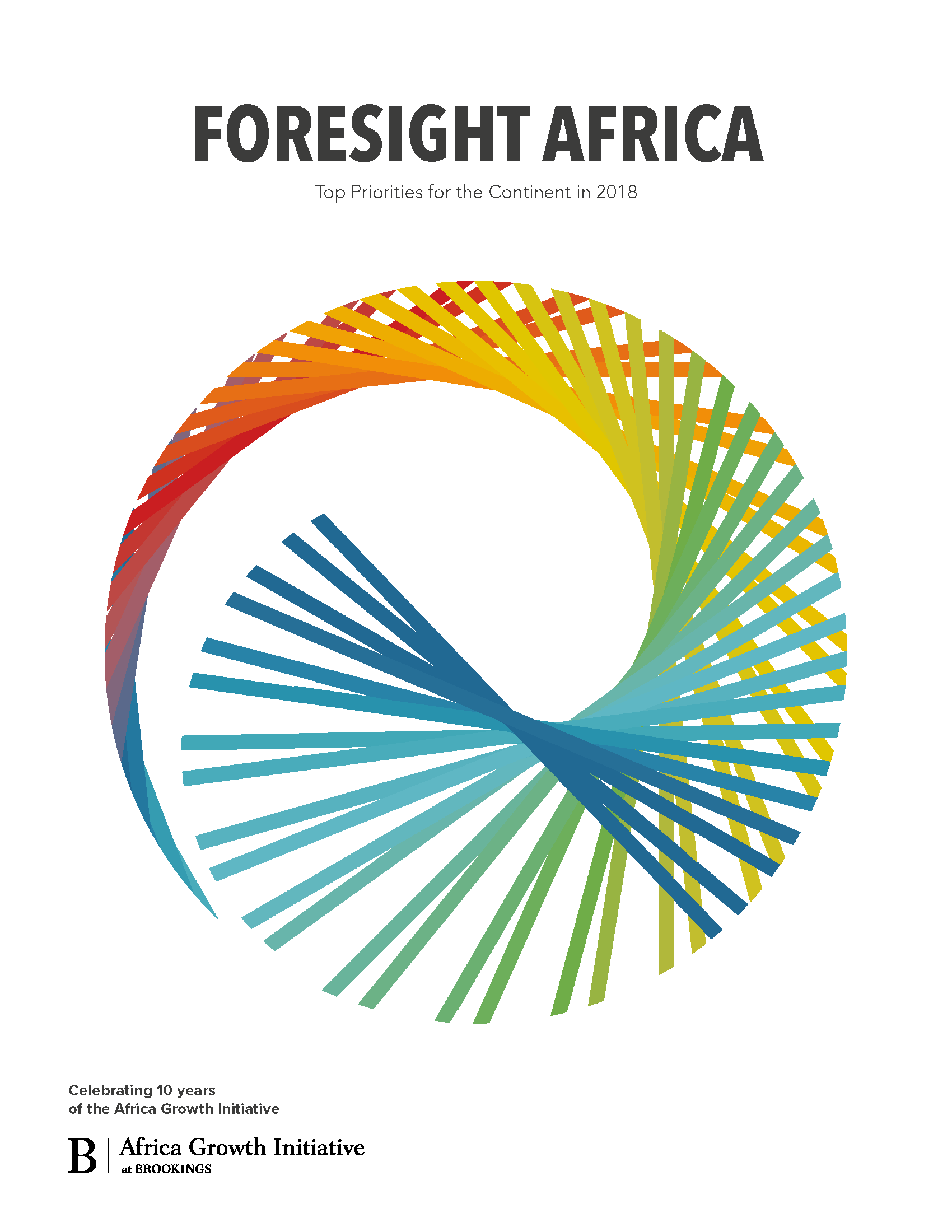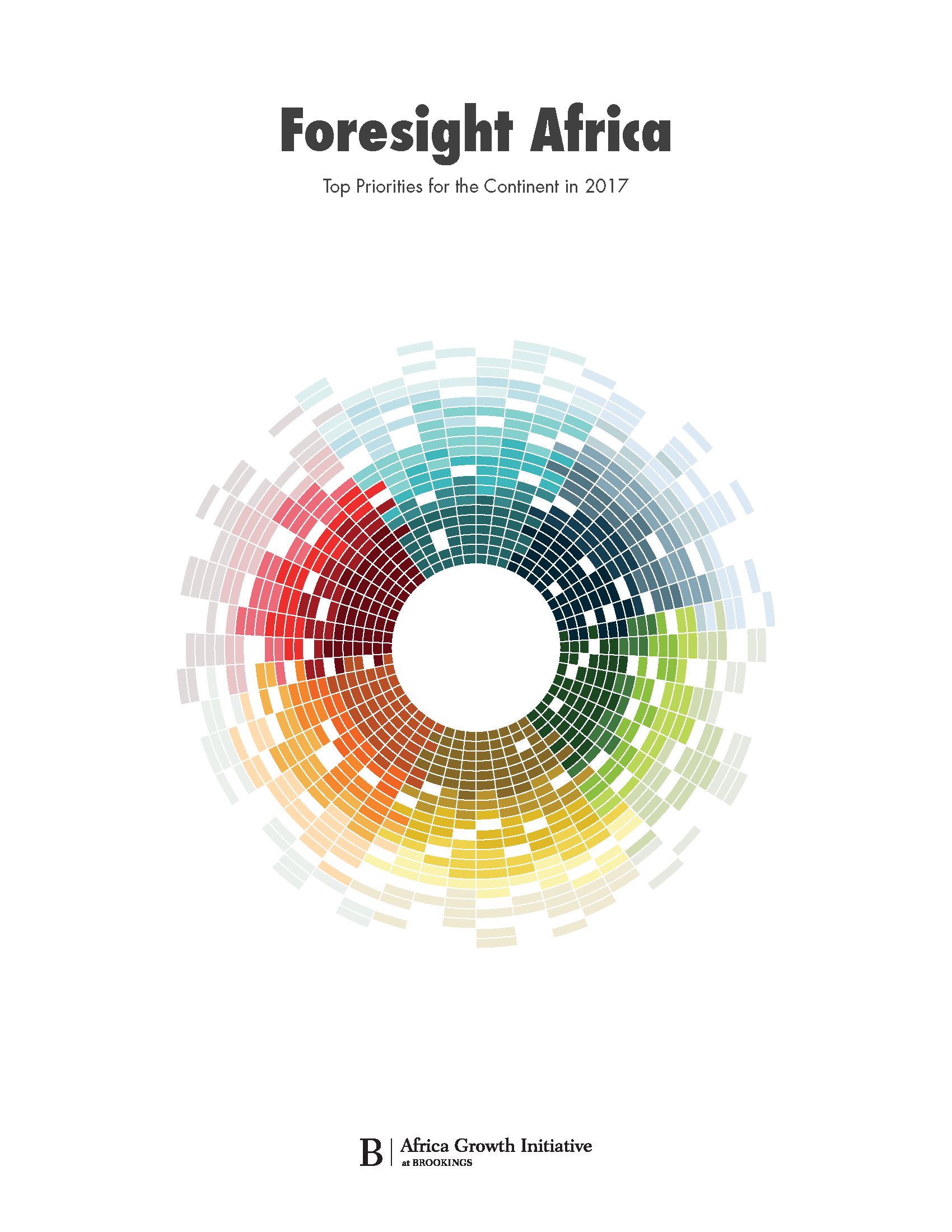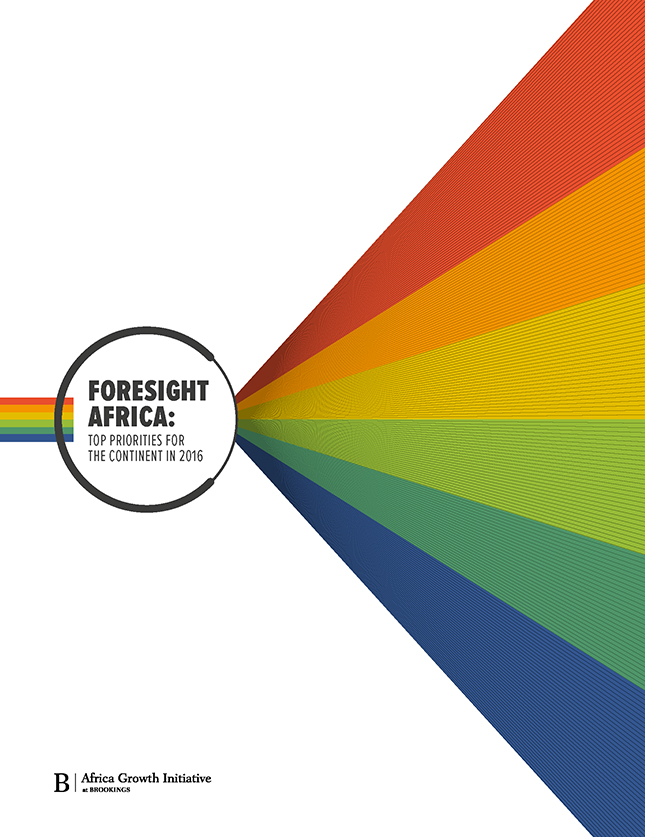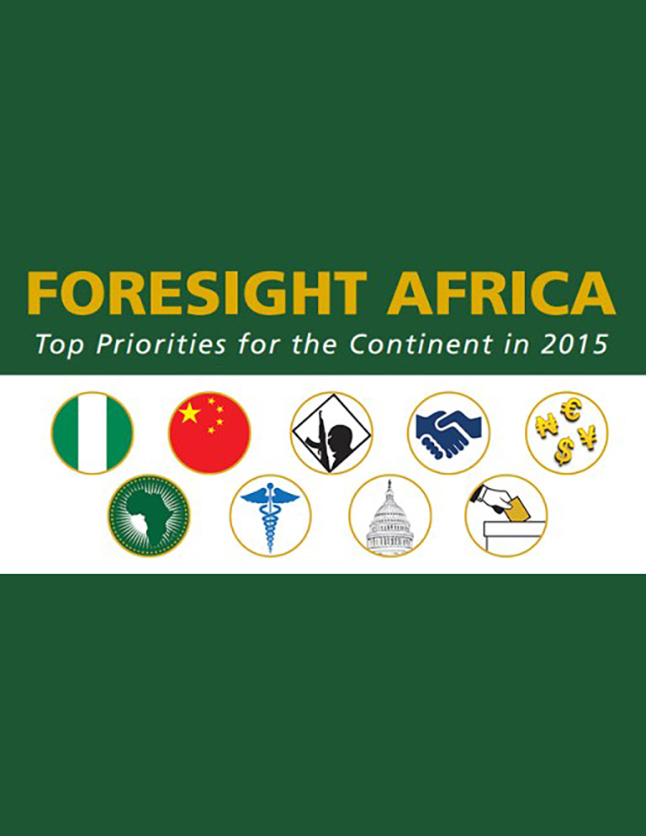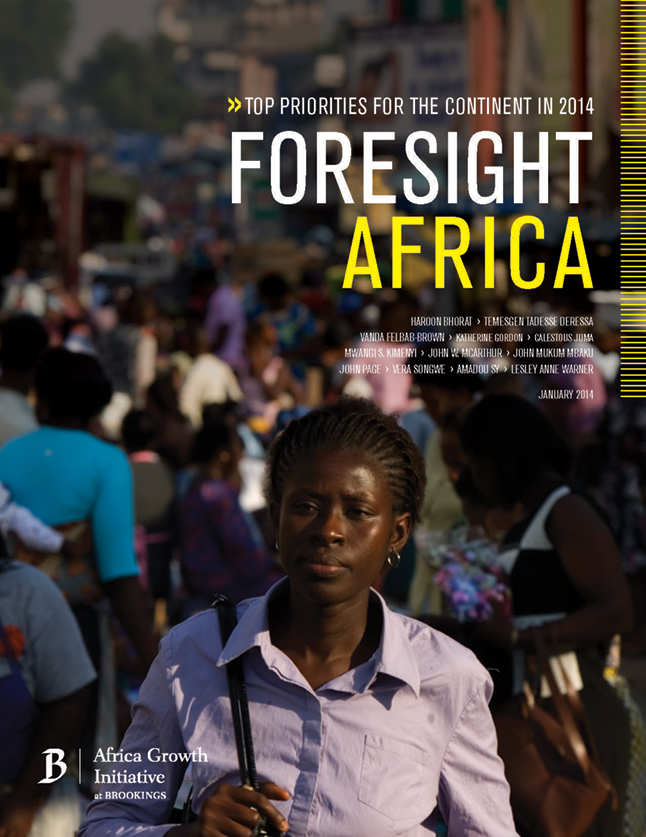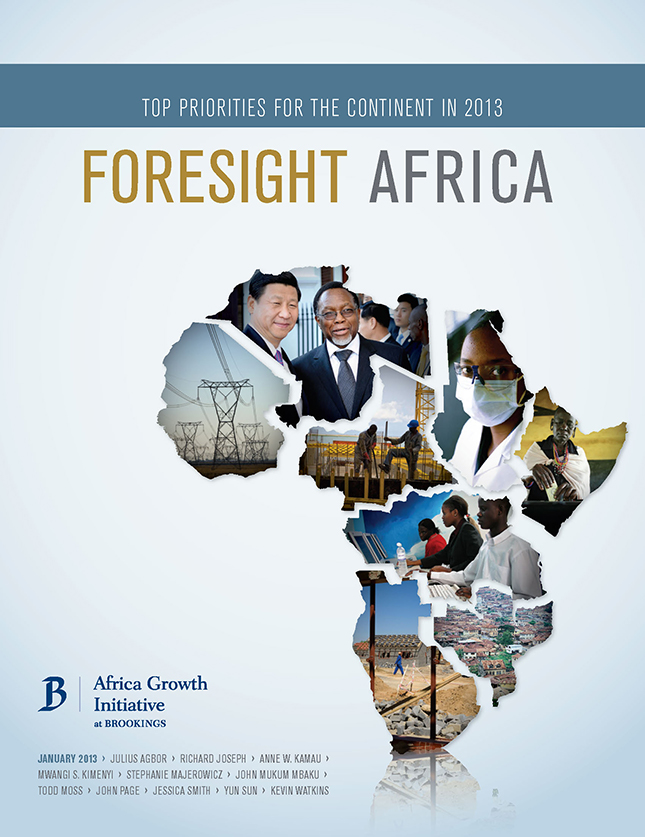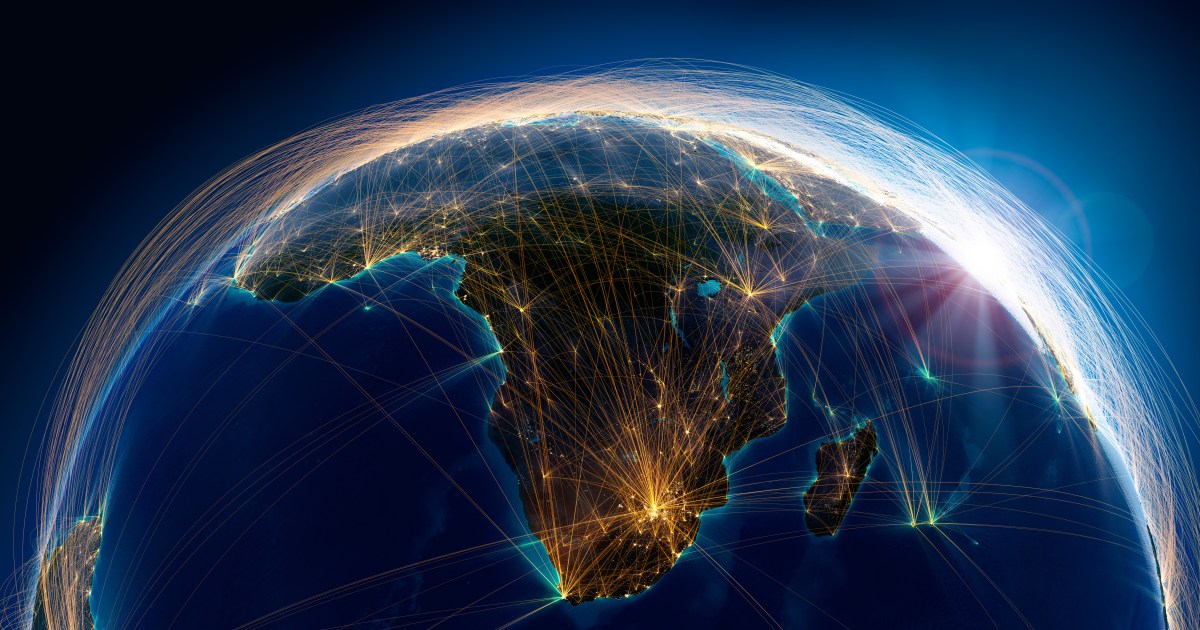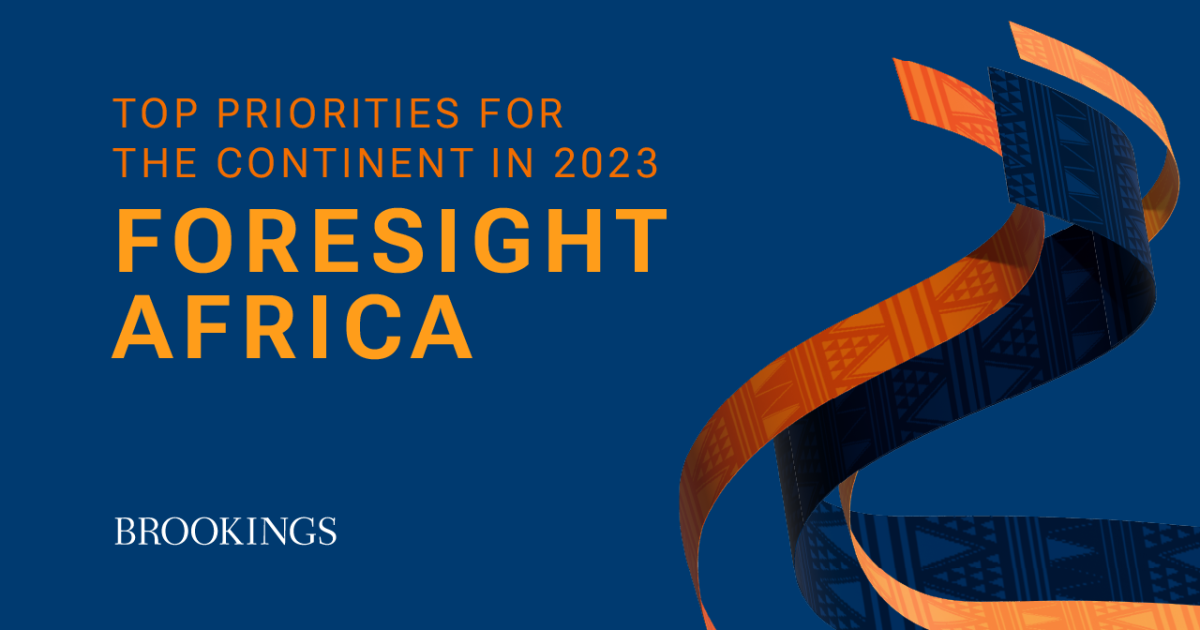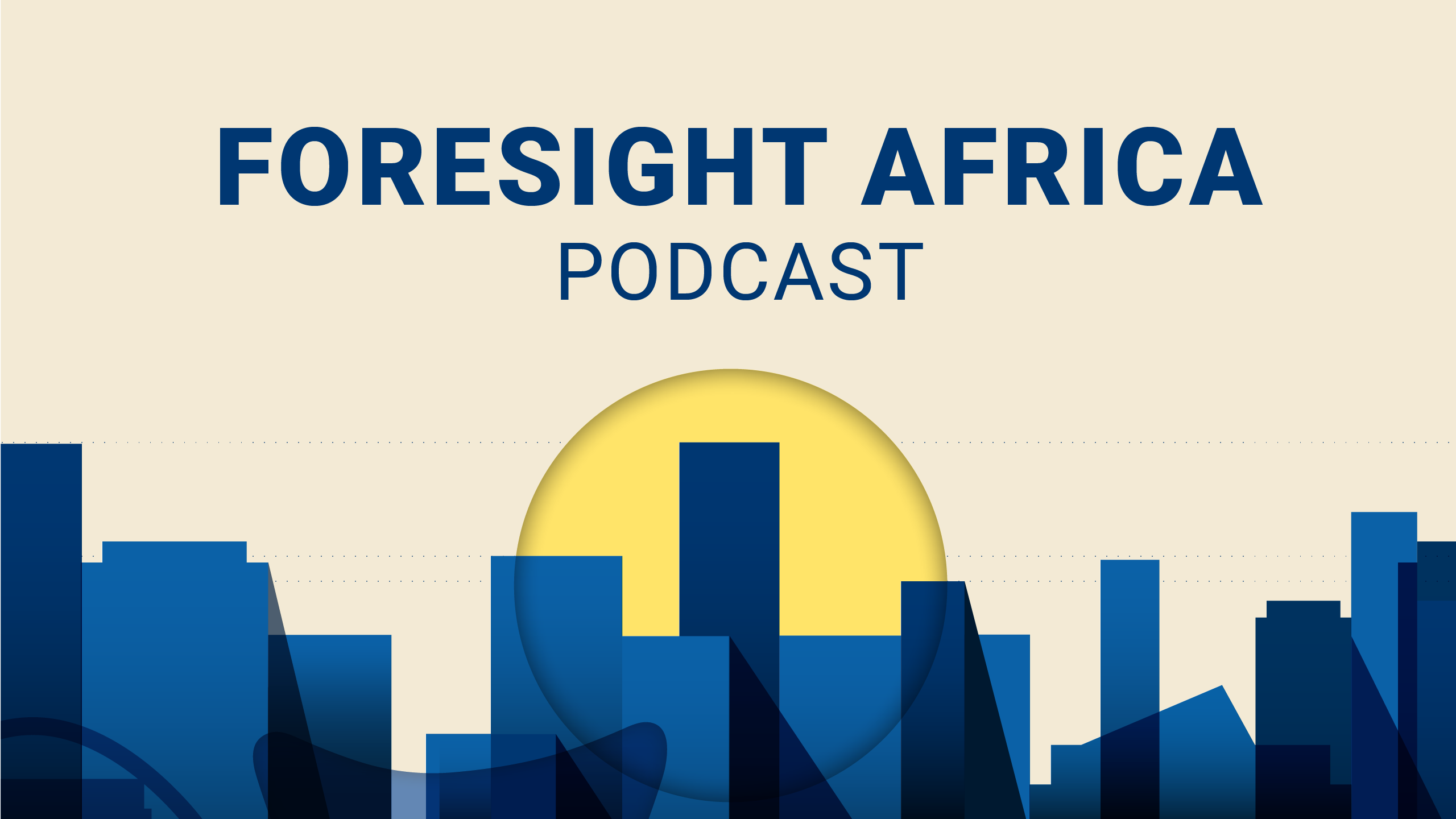Foresight Africa
2023
Upcoming Event
Foresight Africa:
Top priorities for Africa in 2023
On January 30, AGI will host a Foresight Africa launch featuring a high-level panel of leading Africa experts to offer insights on regional trends along with recommendations for national governments, regional organizations, multilateral institutions, the private sector, and civil society actors as they forge ahead in 2023.
Report Overview
As with every iteration of Foresight Africa, we aim to capture the top priorities for the region in the year ahead, offering recommendations for supporting Africa at a time of heightened global turbulence. We hope that Foresight Africa 2023 will promote dialogue on the key issues influencing development policy and practice in Africa throughout this year. Such ideas will ultimately provide sound strategies for expanding the benefits of economic growth to all Africans in the years ahead.
Browse through the chapters belowTackling multiple headwinds
Africa’s economic recovery is currently threatened by multiple crises and a precarious external environment. The war in Ukraine and global surge in inflation have ripped open the scars of the pandemic—putting historic pressure on food, fuel, and fertilizer prices. Meanwhile, the uneven recovery from the COVID-19 pandemic continues to feature in headlines across Africa and elsewhere. Fragility in parts of the continent and adverse weather conditions are also key concerns. With these challenges, it is easy to be pessimistic about Africa’s prospects, and yet, Africa has proved resilient—time and time again. In Chapter 1, our authors share reasons for optimism in Africa’s resilience and offer policy options for tackling the multiple headwinds facing the region.
Read Chapter 1Viewpoints
The banking sector as a partner in Africa’s recovery: A perspective from Ecobank Group Africa’s sovereign finance toolbox: Building resilience for a sustainable future In search of new ideas for Africa’s recovery: Sports and creative industries as game changers? Self-organizing Nigeria: The antifragile state Nigeria in 2023: Bridging the productivity gap and building economic resilience Staying the course: Strengthening fundamentals despite adversityStrengthening Africa’s food systems
Food security has taken on heightened policy relevance as several challenges and exogenous shocks—including the increased incidence of droughts, floods, and other extreme weather events; recurrent outbreaks of pests and diseases; and limited adoption of yield-increasing technologies—have exposed the fragilities of Africa’s food systems, jeopardizing the ability to meet the food demand of a burgeoning population. For this reason, we dedicate Chapter 2 to strategies for strengthening Africa’s food systems to achieve better food access, improved nutrition, and agricultural transformation.
Read Chapter 2Equipping a labor force for the future
The COVID-19 pandemic, climate shocks, and conflict have left many African children out of school and set them back in terms of learning outcomes. Yet, for Africa to prosper, investing in the education and skilling of the region’s next labor force, must be at the heart of strategies for inclusive and sustainable growth. As such, in Chapter 3, our authors focus on policy options to close the financing gap needed to achieve Sustainable Development Goal 4 (inclusive and equitable quality education); debate ways to ensure Africa’s burgeoning youth demographic is ably equipped with knowledge and skills for gainful employment; and provide strategies to mitigate learning losses arising from pandemic-related closures and disruptions.
Read Chapter 3Viewpoints
Foundational skills for a more inclusive Fourth Industrial Revolution (4IR) in Africa To prosper, Africa’s children and youth must learn Learning on the move: Resetting the agenda for education and learning in conflict-affected settings International education financing will make or break the SDGs STEM education in Africa: Risk and opportunityAssuring health security for all
As the continent looks to make a full recovery and gain back lost ground, we must not forget a key lesson from the pandemic: Sound health systems and economic resilience are closely intertwined. The COVID-19 pandemic exposed weaknesses in health systems around the world—not least in Africa, which was already burdened with poor health outcomes due to the prevalence of communicable diseases such as HIV/AIDS, among other development challenges. To this end, in Chapter 4, our experts reflect on lessons from the pandemic and propose ideas to strengthen Africa’s health systems to secure health for all.
Read Chapter 4Viewpoints
Using information and communication technology to improve mental health in Africa Ethiopia’s lessons from COVID-19 Building Africa’s capacity for pandemic and epidemic intelligence Empowering frontline workers to develop and deliver health care solutions Confronting global inequalities to end HIV/AIDSClosing the equity gap
The burdens of the COVID-19 pandemic have been unequally borne across regions and countries, between the poor and better off, and between men and women. Existing economic gender inequalities—related to income, coping strategies, labor and time use, food and water insecurity, and child education outcomes—have been further exacerbated by today’s interlocking challenges and headwinds. Thus, we have dedicated a full chapter (Chapter 5), to the gender dimensions of Africa’s economic recovery and what strategies policymakers should be attuned to in order to close the gender gap.
Read Chapter 5Viewpoints
Women and access to justice in Africa: Women cannot wait another 100 years COVID-19 shed light on the challenges facing Africa’s women: The recovery must bring them out of the shadows Closing the gender gap through digital and social inclusion: The Togolese case Equal power, faster progress: A recipe for Africa’s transformationAdapting to a new normal
A momentous highlight from the year 2022 was COP27—"Africa's COP"—and the breakthrough agreement to establish a “loss and damage” fund. While the historic outcome is a welcome one and will help Africa adapt to a new normal, much remains to be done to operationalize the fund and advance progress on climate adaptation, mitigation, and awareness. Thus, in Chapter 6, our authors show that through political will, collective action, and innovative financing—as was ably demonstrated during the pandemic—the climate crisis can indeed be overcome.
Read Chapter 6Viewpoints
Gold mining, climate change, and Africa’s transition The case for climate financing Climate adaptation finance in Africa Africa’s Blue Economy can continue to deliver huge benefits to the continent Global decarbonization: Industrial opportunities for Africa Managing the compounding debt and climate crisesRealizing the new urban agenda
While Africa has the fastest urbanization rate globally, it has yet to realize the full potential and economic benefits of agglomeration observed in other regions. For this reason, in Chapter 7 on cities and urbanization, our experts explore the key barriers and obstacles to realizing the new urban agenda facing Africa’s city managers—from Lagos to Cape Town.
Read Chapter 7Past Reports
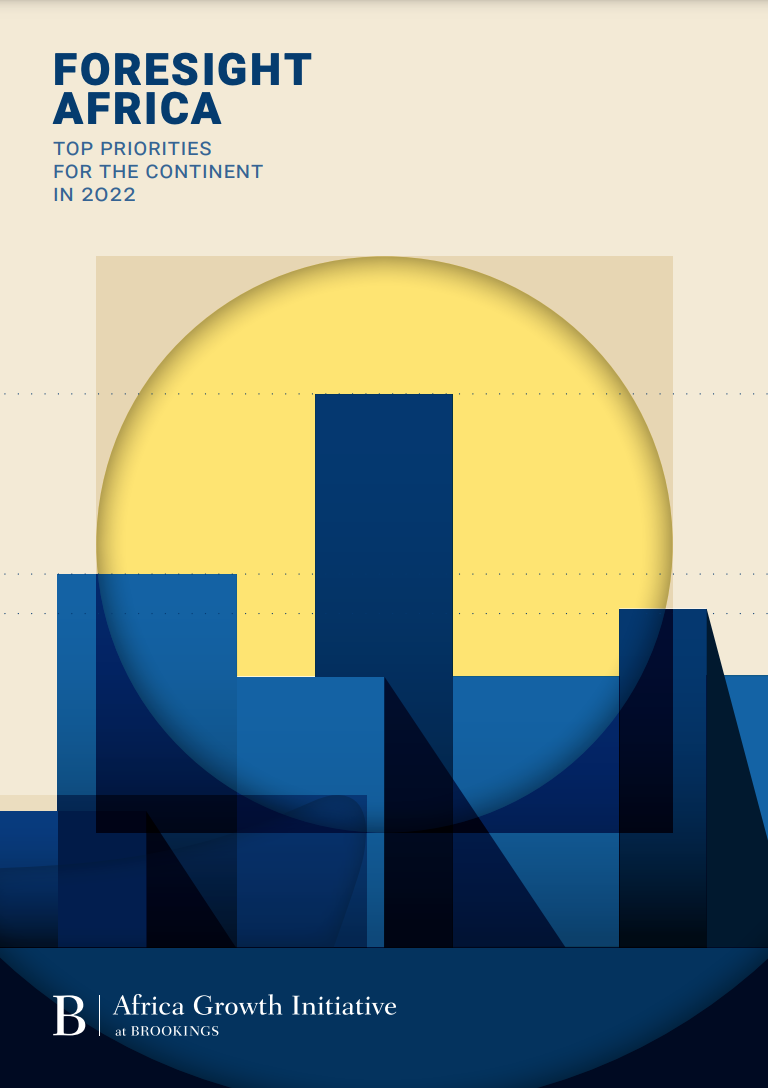
Foresight Africa 2022: Top priorities for the Continent in 2022
1.
2.
3.
4.
5.
6.
‣
‣
‣
‣
‣
‣
‣
‣
‣
‣
‣
‣
‣
‣
‣
‣
‣
‣
‣
‣
‣
‣
‣
‣
‣
‣
‣
‣
‣
‣
‣
‣
‣
‣
‣
‣
‣
‣

Foresight Africa 2021: Top priorities for Africa in 2021
1.
2.
3.
4.
5.
6.
‣
‣
‣
‣
‣
‣
‣
‣
‣
‣
‣
‣
‣
‣
‣
‣
‣
‣
‣
‣
‣
‣
‣
‣
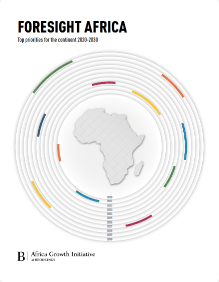
Foresight Africa: Top priorities for Africa in 2020-2030
1.
2.
3.
4.
5.
6.
‣
‣
‣
‣
‣
‣
‣
‣
‣
‣
‣
‣
‣
‣
‣
